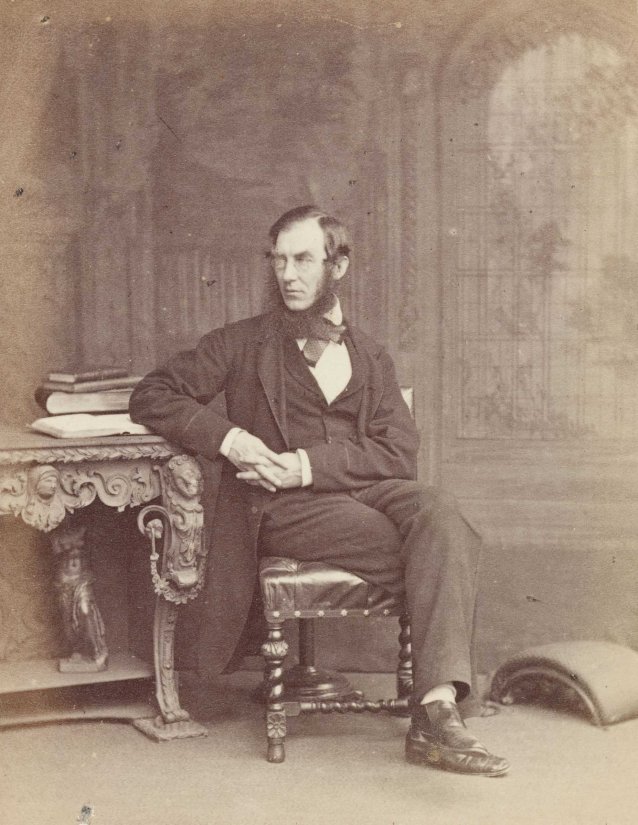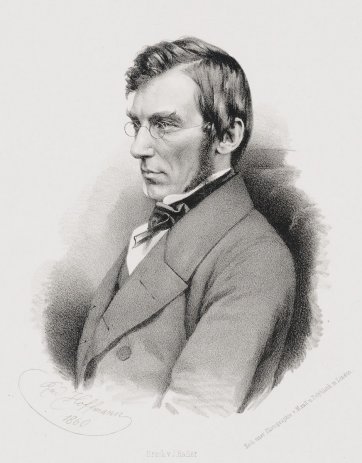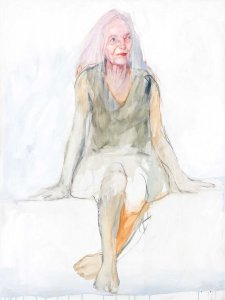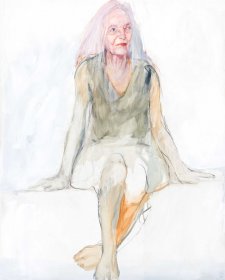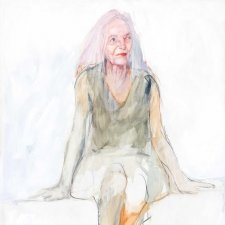Joseph Dalton Hooker (1817–1911) was one of the nineteenth century’s most eminent botanists. Hooker is said to have demonstrated an interest in science from a very young age, as a child attending lectures delivered by his father, William Jackson Hooker, at Glasgow University. Aged 15, he was formally admitted to the university as a student, initially in classics and mathematics and then medicine. On graduating in 1839, Hooker joined the Naval Medical Service and was appointed to the position of assistant surgeon and naturalist to one of the two ships engaged in James Clark Ross’s expedition to Antarctica. Between 1839 and 1843, the expedition sailed along a vast stretch of the Antarctic coast and also visited islands in the southern Atlantic and Indian Oceans, Tierra del Fuego, New Zealand, Van Diemen’s Land and (briefly) Sydney. Hooker published the results of the botanical explorations he conducted on the trip in three landmark texts, Flora Antarctica (1844–47), Flora Novae-Zelandiae (1853–55) and Flora Tasmaniae (1855–60). The third of these volumes was particularly significant for containing an essay in which Hooker supported the then controversial theory of natural selection proposed by his close friend, Charles Darwin. Between 1847 and 1851, Hooker travelled in India, Nepal and Tibet, making detailed studies of the flora and topography of these regions. Hooker succeeded his father as Director of the Royal Botanic Gardens at Kew in 1865, remaining in this role until his retirement in 1885.
Collection: National Portrait Gallery
Purchased with funds provided by L Gordon Darling AC CMG 2009
The National Portrait Gallery respects the artistic and intellectual property rights of others. Works of art from the collection are reproduced as per the
Australian Copyright Act 1968 (Cth). The use of images of works from the collection may be restricted under the Act. Requests for a reproduction of a work of art can be made through a
Reproduction request. For further information please contact
NPG Copyright.
